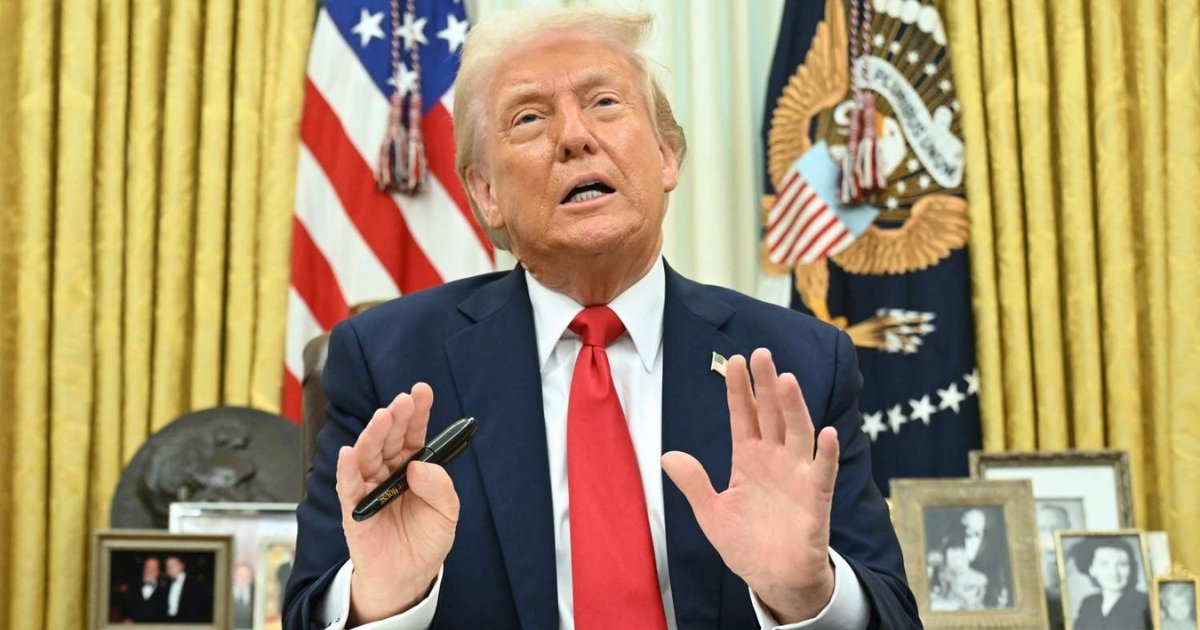
In a recent interview, President Donald Trump stirred controversy by suggesting that tariff revenue could replace the federal income tax. He added “There is a chance” that it might work in the future.
Furthermore, while the idea may appeal to those seeking a simpler tax system, many economists remain highly skeptical. They warned about serious revenue gaps and consequences for trade and consumers.
Trump’s Suggestion: Tariff Over Income Tax
The idea of Trump imposing tariffs over income taxes has sparked debate among economists and policymakers. Economists highlight that the revenue from tariffs falls short of what is needed to replace income taxes. In 2025, tariffs are projected to generate around $166.6 billion, accounting for about 0.55% of GDP.
The implementation of high tariffs has led to economic concerns. The International Monetary Fund (IMF) reduced its global growth forecast to 2.8% for 2025. This is attributed to the slowdown due to increased trade tensions stemming from U.S. tariffs.
Additionally, around 90% of economists, including Nobel laureates, have criticized the tariff policy, warning it could lead to a “self-inflicted recession” and higher prices for American consumers.
Economists Warn of Major Revenue Shortfall
Economists are warning over significant revenue shortfalls, particularly President Trump’s proposal to replace federal income taxes with tariff revenues.
- Tariff Revenues Fall Short of Income Tax Needs: President Trump claimed that tariffs could generate sufficient revenue to supplant income tax. However, data from the U.S. Customs and Treasury reveal that, since the reinstatement of the new tariff in February 2025, customs duties have averaged around $263 million per day. Thus, totaling around $96 billion annually.
- Projected Budget Deficit and Revenue Concerns: The Congressional Budget Office (CBO) projects a federal budget deficit of $1.87 trillion for fiscal year 2025. Total federal revenues are estimated at $5.2 trillion, or 17.1% of GDP. On the other hand, the outlays are projected at $7 trillion, or 23.3% of GDP. Therefore, such disparity between revenues and expenditures underscores the challenge of replacing income tax revenue with tariffs.
- Impact of IRS Budget Cuts on Revenue Collection: Former Treasury Secretary Lawrence Summers has criticized the budget cuts to the IRS. He warned that these actions could cost the U.S. government over $1 trillion in lost revenue over the next decade. The redaction in enforcement capabilities may lead to increased tax noncompliance, further diminishing federal revenue.
Political Reaction to Trump’s Tax Swap Proposal
President Donald Trump’s proposal on tariffs revenue replacing federal income taxes has ignited a spectrum of political reactions, revealing deep divisions among major parties. Within the Republican Party, reactions to Trump’s tax swap proposal are mixed. Former House Speaker Newt Gingrich interpreted a note from Trump as a firm stance against increasing income taxes. He emphasized that any tax hikes could jeopardize Republican electoral prospects.
However, some GOP lawmakers, including Senator Chuck Grassley and Freedom Chair Andy Harris, have considered modest tax increases to fund initiatives like the Child Tax Credit expansion. Despite these discussions, prominent conservatives, including Gingrich and House Speaker Mike Johson, remain staunchly opposed to any tax hike.
Global Trade Risks Tied to Tariff-Only Revenue Model
The shift toward a tariff-dependent revenue model poses substantial risks to global trade stability and economic growth. The IMF has downgraded its global forecast for 2025 to 2.8%, down from 3.3% in the previous year. Thus, attributing this decline primarily to the escalating U.S. trade war.
The IMF warns that the ongoing trade tensions and increased tariffs are contributing to a global economic slowdown. It is having long-term effects on competition and innovation. Bloomberg reported that the cumulative impact of the U.S. tariff increases could reduce global output by $2 trillion by the end of 2027, compared to a scenario without such trade barriers. Thus, this projection underscores the far-reaching consequences of the United States’ trade policies on the global economy.
Conclusion
President Trump’s proposal to replace income tax with tariffs has sparked intense debate. While appealing in theory, experts warn of massive revenue gaps and global trade risks. With economists, lawmakers, and institutions expressing concerns, the feasibility of a tariff-only model remains highly questionable for sustaining the U.S. economy.
